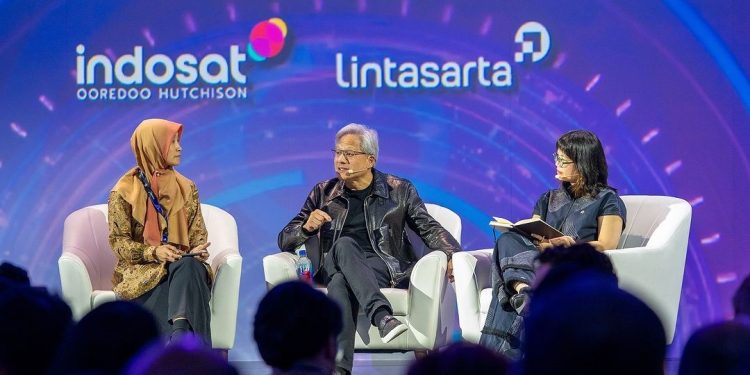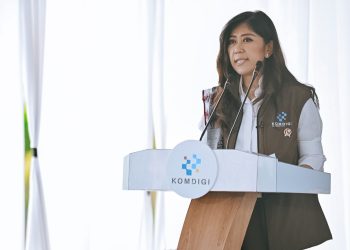Jakarta, Indonesia Sentinel — Indonesia’s Deputy Minister of Higher Education, Science, and Technology (Kemendiktisaintek), Stella Christie, cautioned the public against becoming complacent due to the convenience of artificial intelligence (AI) tools, urging people to continue producing quality work even with AI assistance.
“Let me share a message, just because we have LLMs (large language models), we should not stop creating and producing excellent work—whether it’s writing, ideas, or anything else,” Christie said during the Indonesia AI Day 2024 event in Jakarta on Thursday, November 14.
Large language models (LLMs) are sophisticated AI algorithms trained on vast amounts of data, forming the basis for AI chatbots like ChatGPT.
Quoting Geoffrey Hinton, widely regarded as the “Godfather of AI,” Christie highlighted a fundamental challenge in AI development: “garbage in, garbage out.” She explained that poor-quality data fed into AI systems will inevitably result in poor-quality outputs.
“Even with LLMs, the responsibility remains on us to think critically and produce original work,” Christie emphasized. “These technologies should inspire us to be even more creative, not less.”
Optimizing Human Potential with AI
Christie identified a key issue among Indonesia’s workforce: the tendency to adopt technologies like ChatGPT without fully harnessing their potential. She stressed the importance of understanding the purpose behind using these tools to maximize their benefits.
She also expressed concerns about the unproductive use of AI, where it is often employed merely as a shortcut to speed up tasks rather than as a tool to solve complex problems.
“For instance, if I want to write about how we can produce electric batteries in Indonesia but lack deep knowledge of the components, I can use ChatGPT to gather various data points,” she explained. “However, I would then analyze and process that information myself.”
Deadly Eruption of Indonesia’s Mount Lewotobi Revives Ancient Cultural Rituals
Christie argued that AI tools like ChatGPT should be leveraged to tackle specific, well-defined challenges. “The first level of analysis is identifying the problem we want to solve. Once that’s clear, and the goal is worthwhile, we can use various tools, with ChatGPT being one of them,” she said.
She emphasized that using AI merely for quick task completion limits its potential. In contrast, when directed toward solving meaningful problems—like conducting research that requires in-depth data—AI can be a highly effective tool.
“ChatGPT is just a tool,” Christie concluded. “The quality of the outcome depends entirely on the intention and approach of the user.”
Deputy Minister Stella Christie remarks come at a time when AI technology is rapidly advancing, prompting both opportunities and challenges for Indonesia’s human capital development.
(Raidi/Agung)

























